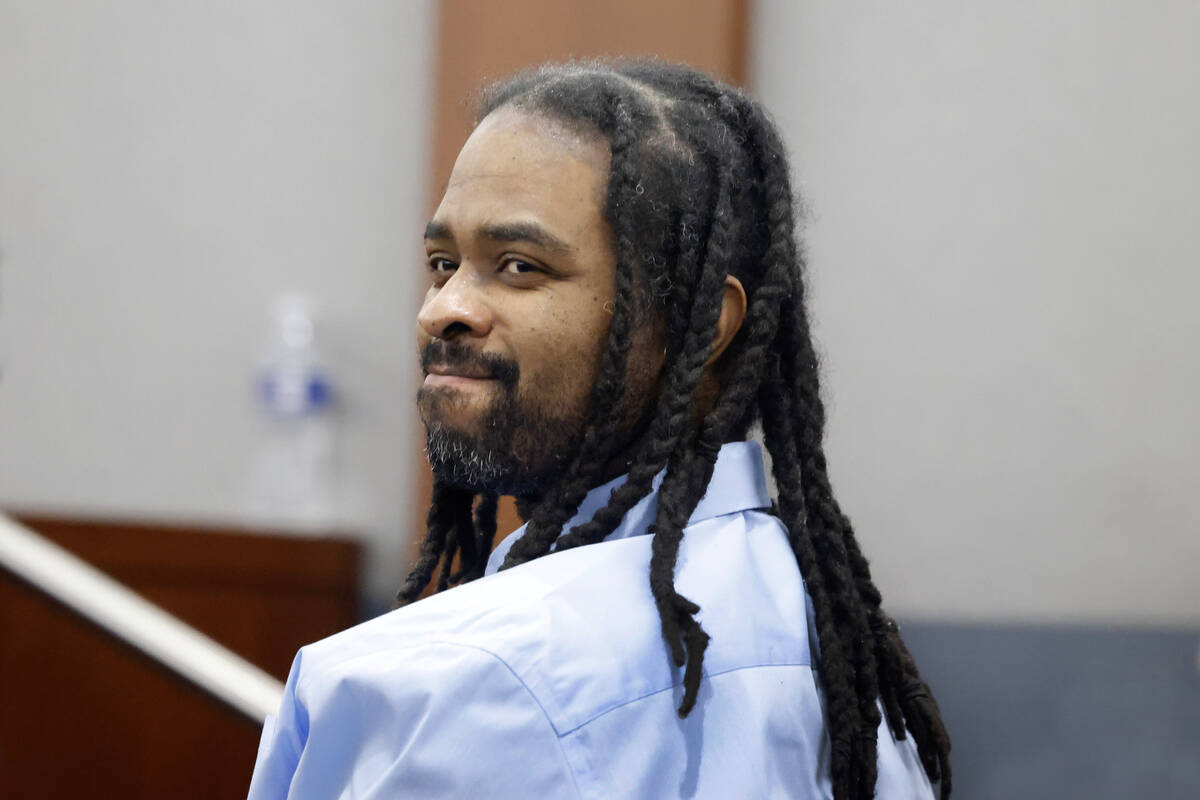Death penalty trial over 2016 Las Vegas killing ends in hung jury

A death penalty trial ended in a hung jury on Thursday, with the judge declaring a mistrial for a man accused of killing and dismembering his wife’s ex-lover more than eight years ago.
Anthony Newton, 37, was facing the death penalty in the slaying of Ulyses Cesar Molina, of Las Vegas, whose body was found dismembered on Dec. 28, 2016.
Thursday marked the second time a mistrial has been declared for Newton, although this is the first time the case had made it to jury deliberations.
Chief Deputy District Attorney Pamela Weckerly said that prosecutors would push for a third trial.
The jury foreperson indicated Thursday that at least one juror believed that further deliberations would be “pointless.” The panel began deliberating Tuesday afternoon then continued all day Wednesday and into Thursday morning.
“At this point the jury as to all counts is unable to come to any type of verdict,” said District Judge Jacqueline Bluth.
The first mistrial in the case happened in November because a witness told jurors that Newton had previously been in prison, court records show.
Killing happened after affair, prosecutors say
Newton was facing charges of murder, conspiracy to commit murder, conspiracy to commit kidnapping, kidnapping with a deadly weapon, conspiracy to commit robbery and robbery with a deadly weapon.
Prosecutors accused Newton of killing Molina with the help of his brother-in-law, George Malaperdas, after an affair Molina had with Newton’s wife.
Malaperdas and another woman, Kelsea Wray Glass, were also charged in connection with the killing. Glass was also romantically involved with both Newton and Molina, according to an arrest report. Malaperdas told police that Wray “set up Molina and called him to the apartment where Newton was waiting,” the report said.
Both Malaperdas and Glass have pleaded guilty in the case, but the guilty pleas were filed under seal, court records show. The two are scheduled to appear for a sentencing hearing on Feb. 11.
In opening statements of the trial, Weckerly said that Newton told his brother-in-law to come to the apartment, and that when Malaperdas arrived, he helped Newton tie Molina up. Newton then “steps on Cesar’s neck until he dies,” Weckerly said.
Prosecutors alleged that Newton and Malaperdas took the body to another location, where they dismembered Molina before leaving his torso and legs in a suitcase in the desert.
In closing arguments, Weckerly said that police searched a home where they believed Molina had been dismembered and found a piece of Molina’s tissue in a large storage bin filled with bleach. The owner of that home, who considered himself Newton’s stepfather, also told police that Newton and another woman came to his home around the time that Molina was killed.
Human hand found in mailbox
Months later in April 2018, a woman living in Henderson found a human hand in her mailbox that police determined belonged to Molina. At the time the hand was discovered, Newton had been in custody at the Clark County Detention Center for months.
Weckerly told the jury during the trial’s opening statements that investigators could not answer how that hand ended up in the woman’s mailbox, according to court transcripts. Police also never found the location of Molina’s head.
“But what you will know and what will be abundantly clear is that the person that killed Cesar Molina was Anthony Newton,” Weckerly told the jury.
Defense attorney Josh Tomsheck has argued that forensic evidence did not prove that Newton or Molina was in the apartment where police said Molina was killed. He said that there is evidence the apartment was never cleaned, but police did not find Newton’s fingerprints or blood inside the apartment. He also told the jury in opening statements that police mishandled or didn’t properly test evidence.
In closing arguments, Tomsheck said that Malaperdas has changed his story about what he saw multiple times, and he cast doubt on witnesses’ testimony.
Hung juries rare in death penalty trials
“I am asking you to be the intelligent few that recognize that in a murder trial something of this importance, this weighty affair of life, that we don’t just accept something because someone says it,” Tomsheck said, according to court transcripts.
Tomsheck told the Review-Journal on Thursday that hung juries are statistically rare in death penalty trials. Prosecutors will decide whether to take the case to trial again, but Tomsheck said he wants to ensure that Newton “has the best defense possible, no matter how many times that takes.”
“We had a very attentive jury that clearly listened to all the evidence,” Tomsheck said after speaking with the jurors.
Newton remains in custody at the Clark County Detention Center without bail. Bluth scheduled another hearing in the case for Feb. 11.
Contact Katelyn Newberg at knewberg@reviewjournal.com or 702-383-0240.